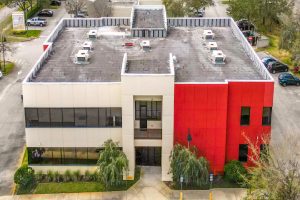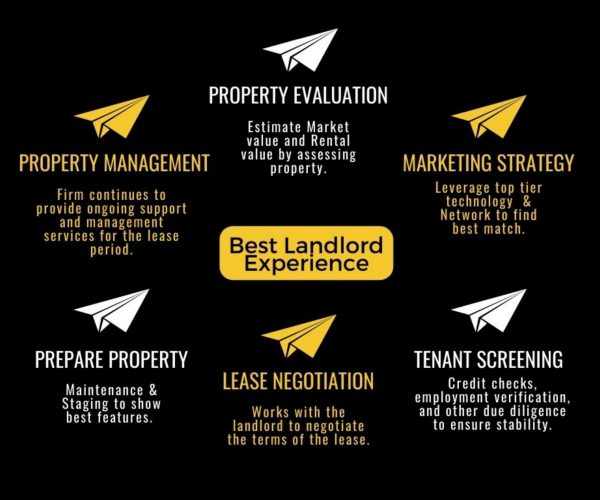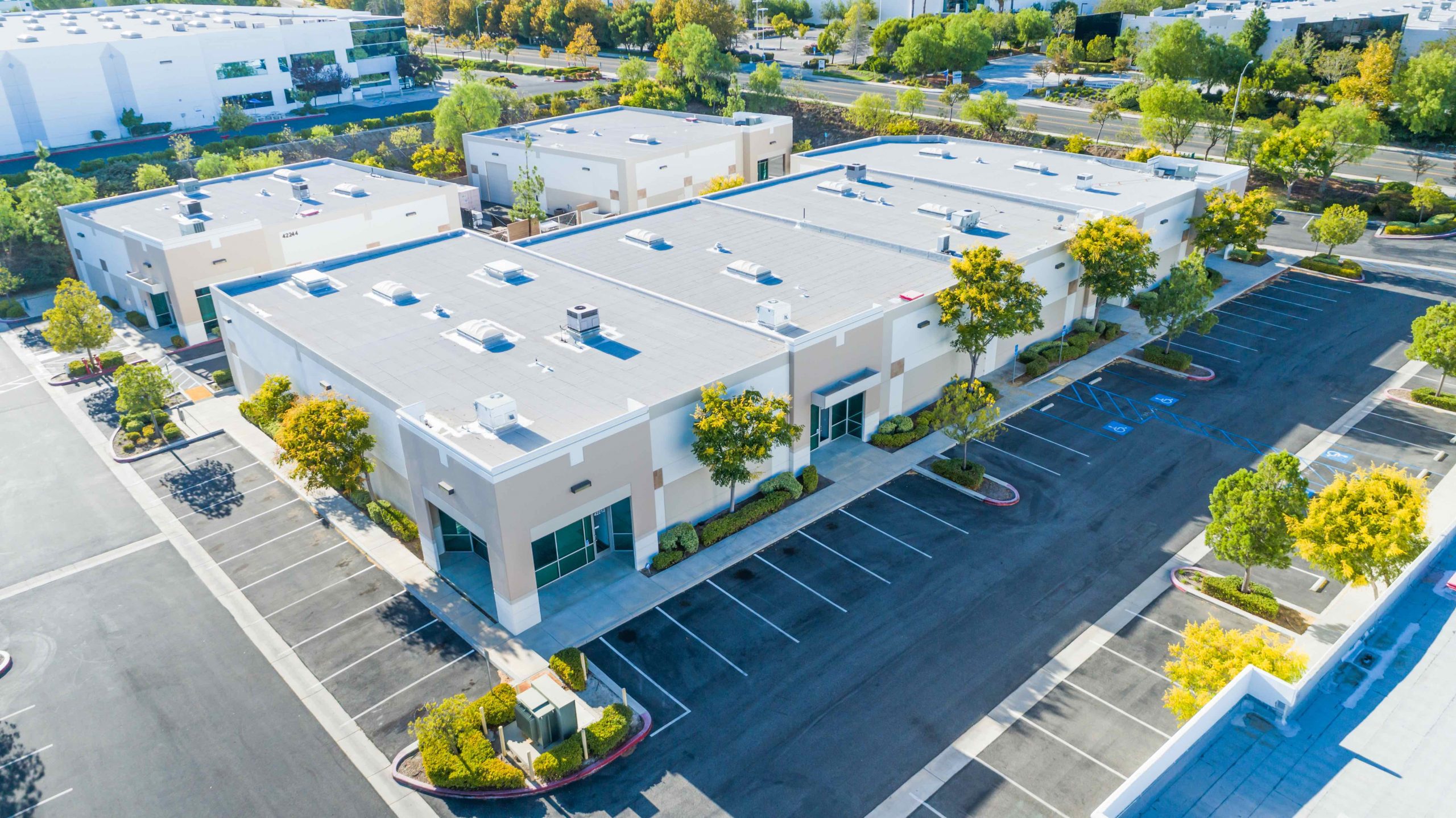commercial real estate for landlords
Our team of experienced brokers will work closely with you to develop a customized marketing strategy that's tailored to your specific property and target audience. We'll leverage our extensive network of industry contacts and use the latest technology and data analysis tools to help you attract the right tenants for your property. If you need an experienced brokerage help with your retail space for lease, office space for rent, or investment properties in Florida, we've got you covered. For all your commercial real estate needs in Florida, call us now.
A trusted and a friendly advisor helping out landlords with commercial real estate
We also understand that leasing or renting out commercial real estate in Florida can involve a range of legal and financial complexities. That's why we work closely with our clients to ensure that all legal and financial requirements are met, and that the transaction is completed in a timely and efficient manner. We take pride in our attention to detail and our commitment to ensuring a smooth and hassle-free transaction for our clients.

Here are few steps that landlord should be expecting while renting or leasing out a retail property.
Determine the market rent: The landlord will need to assess the current market rent for the property. They may consult with a commercial real estate agent in Florida or conduct their own research to determine the appropriate rent amount.
Prepare the property for lease: The landlord will need to make sure that the property is in good condition and that any necessary repairs or improvements are made. This may include painting, cleaning, landscaping or other upgrades to enhance the appeal of the property.
Hire a real estate agent: The landlord may choose to hire a commercial real estate agent in Florida who specializes in commercial properties to help market and lease the property. The agent will help create marketing materials, conduct showings, and negotiate with potential tenants.
Market the property: The commercial real estate agent will list the property on multiple listing services (MLS), online marketplaces, and other marketing channels to attract potential tenants. They may also reach out to their network of contacts to promote the property.
Show the property: The commercial real estate agent will schedule showings of the property for potential tenants. They will provide information about the property, answer questions, and highlight the key selling points.
Receive and negotiate offers: Once a potential tenant has expressed interest in the property, the real estate agent will help the landlord evaluate and negotiate offers. They will help negotiate the terms of the lease, including rent, lease term, tenant improvements, and other important details.
Complete due diligence: Once an offer is accepted, the tenant will typically conduct a thorough inspection of the property to ensure that there are no major issues or hidden problems. The landlord will need to provide access to the property and any necessary documents during this process.
Sign the lease agreement: Once due diligence is complete and all conditions of the lease are met, the landlord and tenant will sign the final lease agreement and complete the transaction. The tenant will typically pay a security deposit and the first month’s rent, and the landlord will provide access to the property.

Here are few steps that landlord should be expecting while renting or leasing out a office property.
Determine the market rent: The landlord will need to assess the current market rent for the property. They may consult with a real estate agent or conduct their own research to determine the appropriate rent amount.
Prepare the property for lease: The landlord will need to make sure that the property is in good condition and that any necessary repairs or improvements are made. This may include painting, cleaning, landscaping or other upgrades to enhance the appeal of the property.
Hire a real estate agent: The landlord may choose to hire a commercial real estate agent in Florida who specializes in commercial real estate properties to help market and lease the property. The agent will help create marketing materials, conduct showings, and negotiate with potential tenants.
Market the property: The commercial real estate agent will list the property on multiple listing services (MLS), online marketplaces, and other marketing channels to attract potential tenants. They may also reach out to their network of contacts to promote the property.
Show the property: The commercial real estate agent will schedule showings of the property for potential tenants. They will provide information about the property, answer questions, and highlight the key selling points.
Receive and negotiate offers: Once a potential tenant has expressed interest in the property, the real estate agent will help the landlord evaluate and negotiate offers. They will help negotiate the terms of the lease, including rent, lease term, tenant improvements, and other important details.
Complete due diligence: Once an offer is accepted, the tenant will typically conduct a thorough inspection of the property to ensure that there are no major issues or hidden problems. The landlord will need to provide access to the property and any necessary documents during this process.
Sign the lease agreement: Once due diligence is complete and all conditions of the lease are met, the landlord and tenant will sign the final lease agreement and complete the transaction. The tenant will typically pay a security deposit and the first month’s rent, and the landlord will provide access to the property.

Here are few steps that landlord should be expecting while renting or leasing out a retail property.
Determine the market rent: The landlord will need to assess the current market rent for the property. They may consult with a real estate agent or conduct their own research to determine the appropriate rent amount.
Prepare the property for lease: The landlord will need to make sure that the property is in good condition and that any necessary repairs or improvements are made. This may include painting, cleaning, landscaping or other upgrades to enhance the appeal of the property.
Hire a real estate agent: The landlord may choose to hire a real estate agent who specializes in commercial properties to help market and lease the property. The agent will help create marketing materials, conduct showings, and negotiate with potential tenants.
Market the property: The real estate agent will list the property on multiple listing services (MLS), online marketplaces, and other marketing channels to attract potential tenants. They may also reach out to their network of contacts to promote the property.
Show the property: The real estate agent will schedule showings of the property for potential tenants. They will provide information about the property, answer questions, and highlight the key selling points.
Receive and negotiate offers: Once a potential tenant has expressed interest in the property, the real estate agent will help the landlord evaluate and negotiate offers. They will help negotiate the terms of the lease, including rent, lease term, tenant improvements, and other important details.
Complete due diligence: Once an offer is accepted, the tenant will typically conduct a thorough inspection of the property to ensure that there are no major issues or hidden problems. The landlord will need to provide access to the property and any necessary documents during this process.
Sign the lease agreement: Once due diligence is complete and all conditions of the lease are met, the landlord and tenant will sign the final lease agreement and complete the transaction. The tenant will typically pay a security deposit and the first month’s rent, and the landlord will provide access to the property.

Here are few steps that landlord should be expecting while renting or leasing out a industrial property.
Determine the market rent: The landlord will need to assess the current market rent for the property. They may consult with a real estate agent or conduct their own research to determine the appropriate rent amount.
Prepare the property for lease: The landlord will need to make sure that the property is in good condition and that any necessary repairs or improvements are made. This may include painting, cleaning, landscaping or other upgrades to enhance the appeal of the property.
Hire a real estate agent: The landlord may choose to hire a real estate agent who specializes in commercial properties to help market and lease the property. The agent will help create marketing materials, conduct showings, and negotiate with potential tenants.
Market the property: The real estate agent will list the property on multiple listing services (MLS), online marketplaces, and other marketing channels to attract potential tenants. They may also reach out to their network of contacts to promote the property.
Show the property: The real estate agent will schedule showings of the property for potential tenants. They will provide information about the property, answer questions, and highlight the key selling points.
Receive and negotiate offers: Once a potential tenant has expressed interest in the property, the real estate agent will help the landlord evaluate and negotiate offers. They will help negotiate the terms of the lease, including rent, lease term, tenant improvements, and other important details.
Complete due diligence: Once an offer is accepted, the tenant will typically conduct a thorough inspection of the property to ensure that there are no major issues or hidden problems. The landlord will need to provide access to the property and any necessary documents during this process.
Sign the lease agreement: Once due diligence is complete and all conditions of the lease are met, the landlord and tenant will sign the final lease agreement and complete the transaction. The tenant will typically pay a security deposit and the first month’s rent, and the landlord will provide access to the property.

Here is a typical workflow of how a brokerage firm helps a landlord rent or lease a land property:
Initial Consultation: The landlord will meet with a broker from the firm to discuss the land property and their goals for renting or leasing it out. During this meeting, the broker will gather information about the property, including its location, size, and potential uses. They will also discuss the landlord’s desired rental or lease rate, lease terms, and any other preferences they may have.
Property Evaluation: The broker will evaluate the land property to determine its market value, potential rental or lease rate, and any improvements or repairs that may be needed to make it more attractive to tenants. They will also research comparable properties in the area to determine how the landlord’s property compares to the competition.
Marketing and Advertising: Once the land property is ready to be rented or leased, the broker will develop a marketing and advertising plan to attract potential tenants. This may include creating brochures, posting the property on the firm’s website, and listing it on online marketplaces and other real estate websites. For land properties, the broker may also reach out to developers, builders, and other potential tenants who may be interested in using the land.
Tenant Screening: As potential tenants express interest in the property, the broker will screen them to determine if they are qualified to rent or lease the space. This may involve checking credit scores, income verification, and other factors to ensure that the tenant is a good fit for the property.
Negotiations and Lease Signing: Once a tenant has been selected, the broker will negotiate the lease terms and conditions on behalf of the landlord. They will work to ensure that the lease is fair and favorable to the landlord, while also meeting the tenant’s needs. For land properties, this may involve negotiating additional terms related to zoning, permits, and other regulatory issues. Once the lease terms have been agreed upon, the broker will oversee the signing of the lease.
Property Management: After the lease has been signed, the broker may continue to provide property management services for the landlord. For land properties, this may involve ensuring that the tenant is complying with zoning and permit requirements, coordinating with the tenant regarding any improvements or changes to the land, and handling any issues or concerns that arise during the lease term.
Throughout the process, the broker will keep the landlord informed and provide regular updates on the status of the rental or lease process. Their goal is to ensure that the landlord’s land property is rented or leased quickly and efficiently, while also maximizing its rental income potential.

Here are few steps that landlord should be expecting while renting or leasing out a Speciality property.
Determine the market rent: The landlord will need to assess the current market rent for the property. They may consult with a real estate agent or conduct their own research to determine the appropriate rent amount.
Prepare the property for lease: The landlord will need to make sure that the property is in good condition and that any necessary repairs or improvements are made. This may include painting, cleaning, landscaping or other upgrades to enhance the appeal of the property.
Hire a real estate agent: The landlord may choose to hire a real estate agent who specializes in commercial properties to help market and lease the property. The agent will help create marketing materials, conduct showings, and negotiate with potential tenants.
Market the property: The real estate agent will list the property on multiple listing services (MLS), online marketplaces, and other marketing channels to attract potential tenants. They may also reach out to their network of contacts to promote the property.
Show the property: The real estate agent will schedule showings of the property for potential tenants. They will provide information about the property, answer questions, and highlight the key selling points.
Receive and negotiate offers: Once a potential tenant has expressed interest in the property, the real estate agent will help the landlord evaluate and negotiate offers. They will help negotiate the terms of the lease, including rent, lease term, tenant improvements, and other important details.
Complete due diligence: Once an offer is accepted, the tenant will typically conduct a thorough inspection of the property to ensure that there are no major issues or hidden problems. The landlord will need to provide access to the property and any necessary documents during this process.
Sign the lease agreement: Once due diligence is complete and all conditions of the lease are met, the landlord and tenant will sign the final lease agreement and complete the transaction. The tenant will typically pay a security deposit and the first month’s rent, and the landlord will provide access to the property.

Here is how a brokerage firm helps a landlord rent or lease a land property:
Initial Consultation: The landlord will meet with a broker from the firm to discuss the land property and their goals for renting or leasing it out. During this meeting, the broker will gather information about the property, including its location, size, and potential uses. They will also discuss the landlord’s desired rental or lease rate, lease terms, and any other preferences they may have.
Property Evaluation: The broker will evaluate the land property to determine its market value, potential rental or lease rate, and any improvements or repairs that may be needed to make it more attractive to tenants. They will also research comparable properties in the area to determine how the landlord’s property compares to the competition.
Marketing and Advertising: Once the land property is ready to be rented or leased, the broker will develop a marketing and advertising plan to attract potential tenants. This may include creating brochures, posting the property on the firm’s website, and listing it on online marketplaces and other real estate websites. For land properties, the broker may also reach out to developers, builders, and other potential tenants who may be interested in using the land.
Tenant Screening: As potential tenants express interest in the property, the broker will screen them to determine if they are qualified to rent or lease the space. This may involve checking credit scores, income verification, and other factors to ensure that the tenant is a good fit for the property.
Negotiations and Lease Signing: Once a tenant has been selected, the broker will negotiate the lease terms and conditions on behalf of the landlord. They will work to ensure that the lease is fair and favorable to the landlord, while also meeting the tenant’s needs. For land properties, this may involve negotiating additional terms related to zoning, permits, and other regulatory issues. Once the lease terms have been agreed upon, the broker will oversee the signing of the lease.
Property Management: After the lease has been signed, the broker may continue to provide property management services for the landlord. For land properties, this may involve ensuring that the tenant is complying with zoning and permit requirements, coordinating with the tenant regarding any improvements or changes to the land, and handling any issues or concerns that arise during the lease term.
Throughout the process, the broker will keep the landlord informed and provide regular updates on the status of the rental or lease process. Their goal is to ensure that the landlord’s land property is rented or leased quickly and efficiently, while also maximizing its rental income potential.
COMMERCIAL SERVICES
EXPAND THE BELOW SECTIONS TO READ MORE ON OUR SERVICE...
We will conduct a search for suitable properties, utilizing our network, technology and market expertise to identify potential options.
Expert Financial analysis is provided, which is guaranteed to help the client make a smart investment decision.
A broker price opinion (BPO) is a report prepared by a real estate broker that provides an estimate of the market value of a property. A BPO is similar to an appraisal, but it is typically less comprehensive and is not as rigorously developed as an appraisal.
It is simply a tool that can be used to help financial institutions and other parties make informed decisions about the property.
We provide the client with an onsite attorney, offering valuable legal expertise, including lease negotiations, due diligence, and contract review, ensuring a smooth and successful transaction.
Due diligence is a process of carefully reviewing and evaluating a property before making a purchase. It is an important step in the property buying process, as it helps buyers understand the condition of the property and any potential risks or issues that may affect the value of the property.
When a property of interest is identified, we will assist the buyer with making an offer, negotiating the terms of the transaction, and ensuring all necessary documentation is in place.
We leverage our extensive banking relationships, providing the client with access to competitive financing options and expert guidance on navigating complex financial structures, resulting in a seamless and cost-effective real estate transaction.
Property management involves the oversight and maintenance of real estate properties, including residential, commercial, and industrial properties.
It has wide range of tasks including but not limited to rent collection, maintenance, tenant relations, marketing and leasing, financial management etc..
100M $ PLUS
A + Rated
Top Rated
FINANCIAL ANALYSIS
We provide our clients with an in-depth financial analysis, including market trends, cash flow projections, and potential risks, enabling the client to make informed and profitable investment decisions.
End-To-End Solutions
We specialize in assisting clients with every aspect of commercial real estate transactions, from identifying suitable properties and negotiating deals to managing the legal and financial aspects of the process.
BANKING RELATIONSHIPS
We leverage our extensive banking relationships, providing the client with access to competitive financing options and expert guidance on navigating complex financial structures, resulting in a seamless and cost-effective commercial real estate transaction.
Let's Get Started
We would love to help you, please leave us your message and contact details
TERMS AND CONDITIONS

contact us
1850 N Alafaya Trail,
Ste 1A, Orlando, FL, 32826
info@brefl.com
+1 (407) 867 0007






